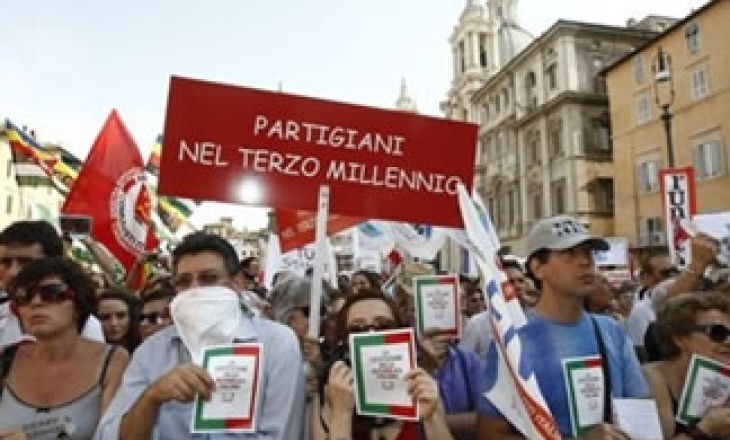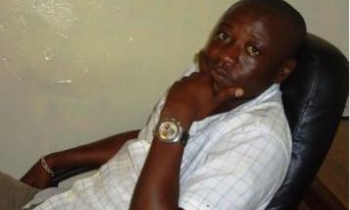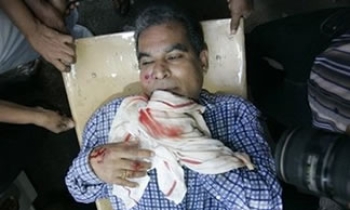Italian Prime Minister Silvio Berlusconi's centre-right coalition backed down on a controversial wiretaps bill Thursday as its deputies approved a watered-down version in a parliamentary committee vote, Agence France-Presse (AFP) has reported. The initial bill would have banned the publication of transcripts in the media and called for up to two years in jail and fines of up to 464,700 euros (600,000 dollars).
It drew fire from the opposition, the European Union and even some of Berlusconi's allies and prompted a one-day strike by most Italian media outlets protesting what they called the "gag law".
The details: [Link]
The amended version of the bill allowing publication of transcripts relevant to an investigation won the backing of opposition parties represented on the justice committee with the exception of the anti-corruption Italy of Values party. It calls for a magistrate to hold a hearing with the subjects of an investigation before authorising the publication of selected transcripts.
Berlusconi, who championed the initial bill on grounds of the protection of privacy, said Tuesday he was not satisfied with the amended version as "Italians would not be able to speak freely on the phone and Italy will not be a really civilised country." But key ally Gianfranco Fini hailed the new version as a victory of "common sense." Justice Minister Angelino Alfano said Wednesday that the lower house Chamber of Deputies would vote on the bill before the summer recess.
Another controversial provision of the original bill -- a laborious procedure requiring the renewal of warrants to wiretap conversations -- was also amended, with warrants to be renewed every two weeks instead of every three days. This month a UN human rights expert said the bill threatened Italians' freedom of expression, while the Organisation for Security and Cooperation in Europe said the bill could hinder investigative journalism.
Journalists went on strike in 2007 against similar legislation proposed and eventually abandoned by the then centre-left government. The widespread use of wiretaps by Italian investigators prompted Berlusconi to complain recently that "we are all spied on," suggesting that upwards of 10 million Italians have had their phones tapped -- a figure disputed by experts.
Wiretaps have produced embarrassing revelations over the conduct of high-ranking government officials including the head of the civil protection agency, Guido Bertolaso, and cost Economic Development Minister Claudio Scajola his job. Last year Berlusconi's private life came under the spotlight with a wiretapped conversation in which an aide discussed arrangements for a call girl to spend a night with the prime minister.










